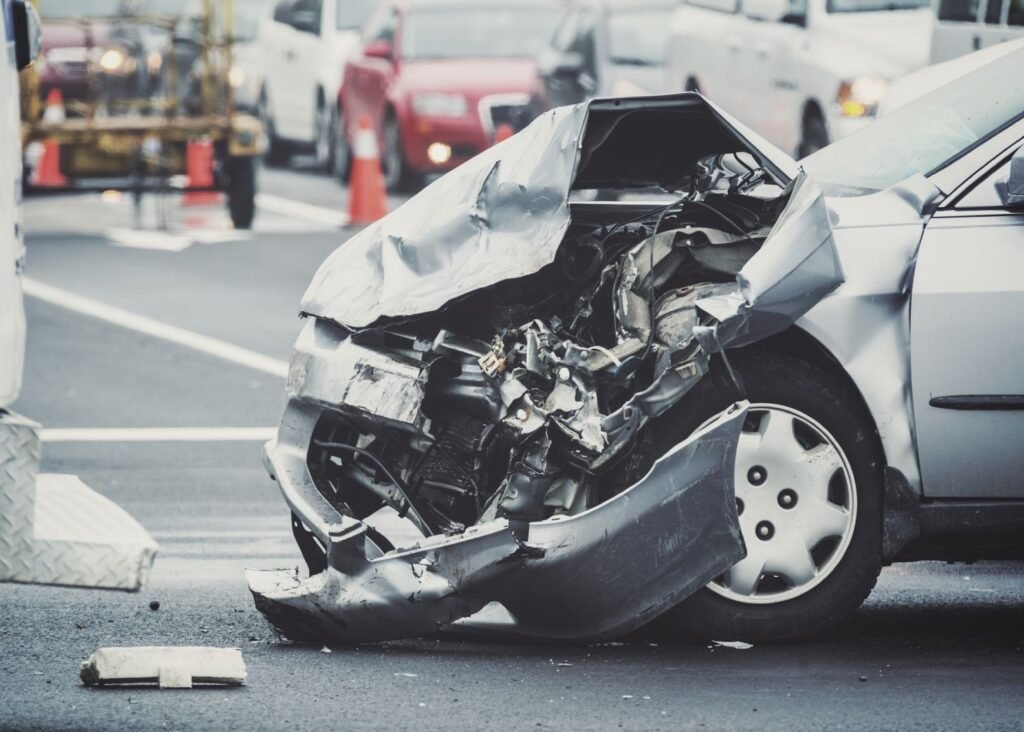Not all auto accidents are caused by human error. Sometimes mechanical failure or needed auto repairs can be at fault for serious accidents. Here are five known auto issues that can lead to accidents. You should never put off necessary maintenance nor needed auto repairs – it could cost lives.
Underinflated or Worn Tires
When any auto’s tire is underinflated you are putting yourself at risk. If it is underinflated by over 25%, your risk is greatly increased. Inadequately inflated tires will begin overheating, causing them to separate or even blow out. This is a concern at any speed, but particularly during hot weather and when you are driving on the highway at higher rates of speed.
Worn tire treads are also a great concern. Once a tire has worn down to 2/32 of an inch they will be unable to provide proper traction, especially in wet road conditions. Hydroplaning is the result of no traction on a wet road and can lead to serious consequences, for you and other drivers nearby.
Loose Lug Nuts:
Lug nuts keep your wheel on the hub. Lug nuts that have not been properly tightened to specifications may become loose and cause your wheel to come off of the car. The lug nuts should always be tightened with the car’s weight on it and tightened in an alternating pattern. If you believe that you have the wrong type of lug nuts on your wheel or that you have a damaged lug nut hole, you need to have them replaced. Lug nut troubles can become serious fast and should never be put off.
Bad Brakes:
Both brake pads and shoes will wear out eventually, needing to be replaced. With heavier driving and brake use, the quicker you will need to replace them. In addition to pads and shoes, hydraulic and other mechanical components within the brake system will also wear out and warrant replacing. Parts made of metal will rust and corrode over time. Seals and hoses made of rubber will deteriorate and begin to leak. If you lose hydraulic pressure when braking, your brakes may fail. You should regularly monitor your brake fluid levels. As brake linings wear, the drop is very gradual, but a rapid drop in brake fluid levels indicates a leak which requires brake repair immediately, for your safety and that of other drivers. Other brake issues can also create road worries and even accidents. Brake issues should never be let go as they will only progress and can cause further damages resulting in more extensive auto repairs.
Bad Steering Linkage:
As time goes by, the tie rod ends in your steering linkage will begin to wear out. This can create loose steering with too much play in the wheel. In addition to steering issues and drifting, the tie rod end can totally fail and comes apart. If this occurs you will lose control of the steering and you vehicle. If the left side’s tie rod should fail, you could be pulled right across the middle of a highway into oncoming traffic! Tie rod end issues can be prevented by visually inspecting your tires for signs of unusual wear or rapid wear. Take notice if your steeling seems to become loose, or starts having a lot of play in the steering wheel. If you feel you may be having tie rod end issues, you should consult with a trusted mechanic or auto repair shop as soon as you can to avoid putting yourself in a potentially dangerous situation.
Another part of the steering linkage that should be inspected is the flexible coupling that is located between your steering column and the steering rack or steering gear. This flexible coupling can wear and start to separate or break completely, leaving you with no control over your vehicle. Steering linkage problems can become deadly and should always be repaired by a knowledgeable mechanic that will stand by their work.
Bad Ball Joints:
The purpose of ball joints is to connect your control arms to the steering knuckle. Cars may have two to four ball joints. When a ball joint fails, the suspension on the side of the car where the breakage occurs will collapse, leaving you behind a wheel you cannot control. You should inspect the ball joints if you hear a clunk type of noise when you hit a road bump. Another sign of ball joint trouble is uneven wear on your tires, often appearing as heavy shoulder wear to the inside of the tire.

